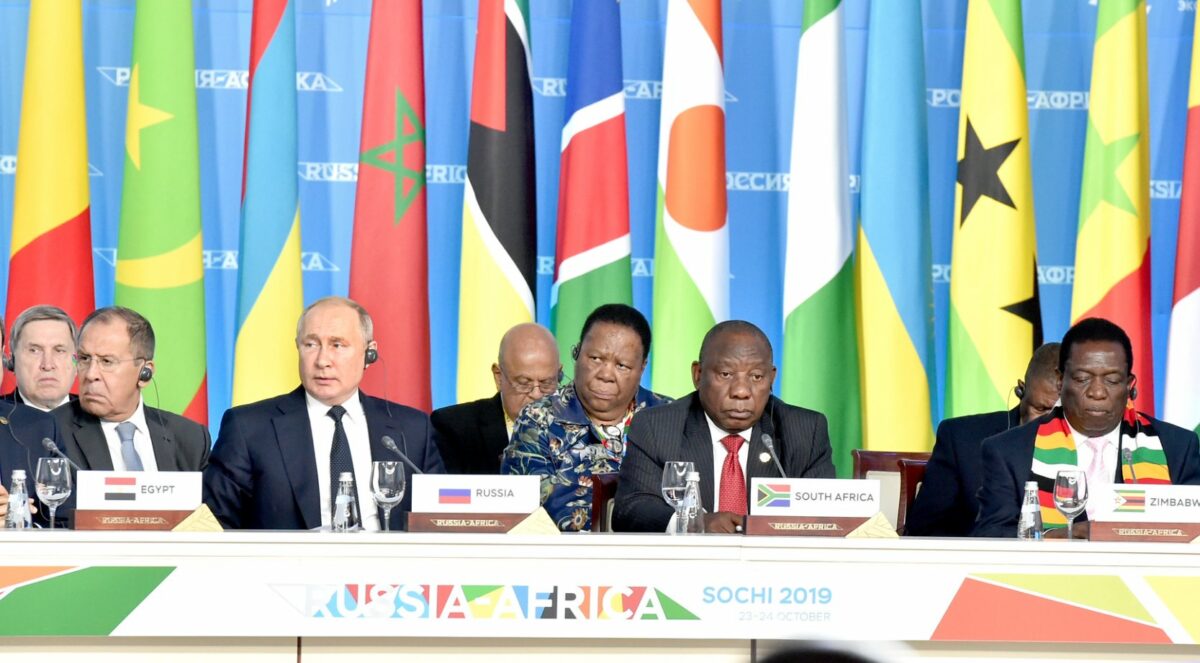The Konrad-Adenauer-Stifung (KAS) recently hosted a webinar on “Russia’s Strategic Engagement in Africa”. There were four speakers who presented various papers on Russia’s relationship with Africa during the Soviet Union era and the present. The moderator of the webinar was Mathias Kamp who is also a policy advisor for KAS. The webinar happened to take place as Russia was heading to elections, which opposition parties are claiming had been manipulated.
In the Southern African region, Russia supported liberation movements from Angola, South Africa, Zimbabwe, Mozambique, and Namibia from the period between 1960 to 1990. In South Africa particularly, anti-apartheid activists received military support from Russia, while others were sent to study further in various fields.
Dr. Stefan Friedrich, KAS’ head of department for Sub-Saharan Africa, said that Russia is not the Soviet Union, and that the Soviet Union was very significant and powerful. He said that the Soviet Union’s footprint was felt across Africa diplomatically and there were three countries that did not have diplomatic relations with the Soviet Union in addition to apartheid South Africa and Namibia (which was an extension of the apartheid regime of South Africa at the time). Those three countries were Malawi, the Central African Republic (CAR), and Ivory Coast.
Dr. Friedrich alleged that Russia had problems as they did not really have power in Africa compared to former colonial powers (France, UK, and others) as well as China and India. Russia does not have deep pockets compared to the countries whose influence is felt in Africa. Realising that Russia’s influence was not really felt in Africa, Russia’s President Vladimir Putin took a decision to re-establish itself in the mother continent.
In October 2019, Russia and Egypt co-hosted the Russia-Africa Summit in Sochi, attended by 43 African states. In that Summit, Russia’s President Putin emphasised “state sovereignty” and Russian commitment to offer aid and trade deals.
“Russia is definitely committed to re-engaging with Africa. Russia has been expanding, opening, and reopening embassies. From a very tiny base, Russia’s trade with Africa is on its way up,” Dr. Friedrich added.
Caylee Clifford is a fellow at the South African Institute for International Affairs (SAIIA), she also made a rousing presentation on the webinar. She said that there were very serious concerns being raised about Russia’s activities in Africa and that Russia was obviously defensive on their activities in the continent.
Clifford said that Russia’s interests in Africa are military related and that Russia is a major exporter of arms to Africa. “Between 2016 and 2020, African states accounted for 20% of Russia’s export of arms in countries like Angola Equatorial Guinea, Mali and others. It is, therefore, safe to say that military relations between Africa and Russia are growing,” said Clifford.
Clifford added that natural resources are another clear, economic motive for Russia, and that this is evident in Zimbabwe through platinum and Namibia through uranium.
Raymond Mujuni, who is a co-founder of the African Institute for Investigative Journalism, echoed Clifford’s sentiment about Russia’s military relationship with Uganda. Mujuni is a veteran investigative journalist in Uganda. Mujuni alleged that despite no formal bilateral agreement between Uganda and Russia, more than 60% of military equipment comes from Russia.
“We have a cold-war going on between Rwanda and Uganda, and Russia provides the balance of forces by supplying military equipment to both countries at war. This means that in the next 30 years democracy will be in the hands of oligarchs, a small powerful elite supported by countries such as China and Russia,” Mujuni said. “After the recent elections in Uganda, a Russian company was awarded a contract, a car-tracking deal, which gave them access to vital state information. We also saw a Chinese company, Huawei, also have access to state information in Uganda”, Mujuni added.
The other problem for Africa which Mujuni cited was the growing population, he stated that one of the biggest problems in Africa is the ever-growing population and that governments are unable to provide services to that population.
Benno Muchler, KAS Country Director for Ethiopia and AU liaison, said that Russia is turning from a strategic point of view. “The relationship between Ethiopia and Russia dates back to the 1970s when they trained Ethiopian military officers. The relations were also intensified in 2018, a year before the 2019 Russian-African Summit. Ethiopia was at odds with the EU and US in the past and that window of opportunity was used by Russia,” Muchler added.

